Global Archive
Free Newsletter

Russia has been in the international spotlight in recent months, with frustration over endemic corruption, lingering anger over December’s manipulated Duma elections and Vladimir Putin’s carefully orchestrated return to the presidency bringing Russian protesters out into the streets in greater numbers than at any time since the fall of the Soviet Union. But despite its political crisis, Russia retains the ability to impact U.S. interests worldwide: The Kremlin is unafraid to flex its still-considerable muscle abroad, blocking U.S.-led efforts to sanction and topple the bloody government of Syrian President Bashar al-Assad, threatening to upend European and even global security over […]

Even in the corridors of the Chinese Communist Party’s headquarters in Zhongnanhai, few would have predicted the remarkable rise in China’s comprehensive national strength since Deng Xiaoping launched the Reform and Open policy in 1978. China’s evolution has been one of the most remarkable feats of governance ever seen. But rather than the definitive manual in strategic planning that it is sometimes portrayed as, the history of China’s post-Mao transformation reads more like a great picaresque novel, in which the protagonist has been forced to beg, steal and kill; navigate untold pitfalls and reversals; and escape from several tight squeezes […]
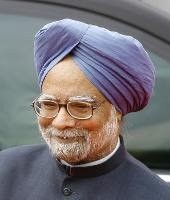
With its rich civilizational history and long tradition of argumentation, India is no stranger to grand strategy. In 300 B.C., Chanakya, better known as Kautilya, the main adviser to King Chandragupta during the Mauryan Dynasty, wrote “The Arthaashastra,” a treatise on statecraft, military strategy and economic policy still referred to by many strategists today. Yet many foreigners and Indians alike have noted that this tradition of strategic thinking has not found its way into contemporary Indian foreign policy. In 1992, the American analyst George Tanham famously wrote (.pdf) that India had “produced little formal strategic thinking and planning.” Pratab Bhanu […]

For more than two centuries, Englishmen have burned an effigy of Guy Fawkes every year on Nov. 5 to commemorate the foiling of the Gunpowder plot to blow up Parliament in 1605. In the 21st century, Fawkes has been given a new lease on life by online activist groups who use photos of Guy Fawkes masks — modeled after that worn by the hero of the science fiction movie “V for Vendetta” — as their online avatars. These so-called hacktivists, who combine computer hacking with social, political and economic protest, have straddled the line between simple criminal behavior and legitimate […]

There is a popular tendency to characterize globalization as an elite-based conspiracy or as something imposed by greedy outsiders upon unsuspecting native populations, hence the enduring belief in the possibility of its systemic reversal. In truth, the spread of modern globalization reflects a bottom-up demand function, not a top-down supply imposition. People simply crave connectivity — in all its physical and virtual forms — as well as the freedom of choice that it unleashes. This simple truth is worth remembering when we contemplate America’s global role in the decades ahead. Why? Time is most definitely on our side. Given enough […]
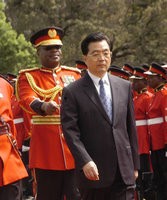
International relations experts are pretty much down on everything nowadays. America, we are told, is incapable of global leadership: too discredited overseas, too few resources back home, too little will — period. For a brief moment there, while China held up the global economy during the recent financial crisis, much credence was given to the notion that we were on the verge of a Chinese century. But that popular vision has also waned surprisingly quickly, and now the conventional wisdom centers on China’s great weaknesses, challenges and overall brittleness. Amazingly, where we spoke of a U.S.-China “G-2” arrangement just a […]

On March 30, the National Research Council of the National Academies of Science (NRC) released to the public an important new study on the technical issues raised for the U.S. by the Comprehensive Nuclear Test Ban Treaty. Packed with well-documented data, the 200-page study will surely inform the policies of the next administration, no matter who wins the White House in November, as it considers whether to pursue Senate ratification of the CTBT. Signed by then-President Bill Clinton signed in 1996, the CTBT failed to win Senate ratification when it was brought to a vote in 1999. The Obama administration […]

The debate over whether or not the United States is in decline is more than just a parlor game among pundits and academics, as the answer to that question informs starkly different policy choices for the country. For significant portions of the anti-interventionist left and right — the latter represented by the small but vocal constituency of GOP presidential candidate Rep. Ron Paul — a United States that is in decline ought to cut back on its engagements abroad and avoid playing the role of the world’s policeman, and instead focus on rebuilding America’s domestic institutions, particularly its economy. While […]
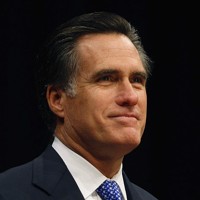
Mitt Romney’s recently described Russia as the “No. 1 geopolitical foe” of the United States, arguing that Moscow consistently “lines up” with America’s adversaries. But does the claim stand up to closer scrutiny? After all, Moscow has not extended material and financial support to the insurgencies in Iraq and Afghanistan, arguably the greatest challenges to the United States, even though there are ample geopolitical justifications to try and bog Washington down in multiple Middle Eastern quagmires, thereby deflecting American attention from Eurasia. Nor does Russia reflexively block any and all U.S. priorities, as the Soviet Union routinely did during the […]
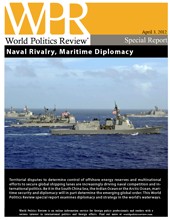
Territorial disputes to determine control of offshore energy reserves and multinational efforts to secure global shipping lanes are increasingly driving naval competition and international politics. Be it in the South China Sea, the Indian Ocean or the Arctic Ocean, maritime security and diplomacy will in part determine the emerging global order. This World Politics Review special report examines diplomacy and strategy in the world’s waterways. Below are links to each article in this special report, which subscribers can read in full. Not a subscriber? Purchase this document for Kindle or as a PDF from Scribd. Or subscribe to WPR now. […]
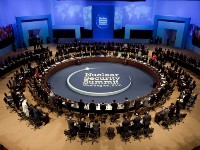
One issue left unresolved by last week’s Nuclear Security Summit in Seoul is how to integrate the summits with several similar initiatives. Like the summits, these other mechanisms have emerged to respond to a new threat not anticipated by the architects of the original nuclear nonproliferation regime, that of nuclear terrorism. The unprecedented geopolitical and technological developments of the past two decades have enabled terrorist groups and other violent nonstate actors, sometimes supported by state sponsors, to exploit illicit trafficking networks to acquire dangerous nuclear technologies and materials. The process of globalization has also meant that countries lacking adequate nuclear […]
